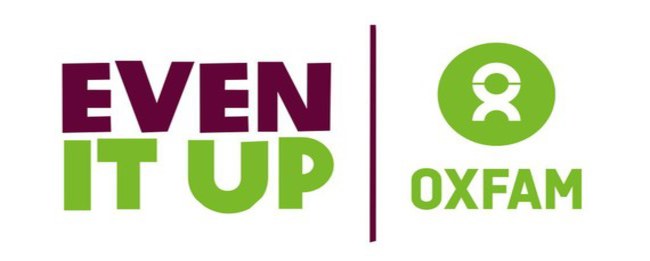Scotland’s new Poverty and Inequality Commission must be bold and independent – Oxfam
Report released ahead of the Commission’s launch and as new poll reveals Scots want a more equal country
People in Scotland favour wealth being distributed more equally in Scotland and support stronger political action to narrow the gap, according to new research by Oxfam Scotland.
The survey coincides with the launch of a new Oxfam report highlighting the scale of inequality in Scotland, the drivers fuelling it and the Scottish Parliament’s powers to help tackle it.
The report, produced in partnership with the Fraser of Allander Institute at the University of Strathclyde, highlights that income inequality in Scotland is at levels last seen in the early 1990s. It comes amid expert forecasts that inequality will rise further without action to tackle it.
The report, ‘Building a more equal Scotland: designing Scotland’s Poverty and Inequality Commission‘, includes Oxfam’s recommendations for the design of the Poverty and Inequality Commission, the body which is being setup by the Scottish Government in 2017-18. The move builds on cross-party concern about inequality and follows Oxfam’s call for the creation of an
Inequality Commission.
The polling, carried out by YouGov for Oxfam as part of its Even It Up campaign, found:
- 75% of respondents favour wealth being distributed more equally in Scotland, when asked to pick from five different wealth distributions, including the current distribution;
- 64% said politicians in Scotland should do more to address economic inequality, with 19% saying they are doing all they reasonably could or should, and 17% answering ‘don’t know’;
- 58% of respondents said they would support an independent body set up by government to propose policy solutions to tackle inequality in Scotland, while tracking progress.
Jamie Livingstone, Head of Oxfam Scotland, said: “With nearly one in five people still living in poverty in Scotland, it cannot be right for the richest 1% to own more wealth than the poorest 50% put together and for income to be so unevenly shared too.
“It is very encouraging to see such strong public support for greater action to tackle inequality, as well as significant cross-party concern. The Scottish Government’s commitment to create a Poverty and Inequality Commission reflects this and is a hugely positive move which presents a significant opportunity for progress.
“However, the Commission must be designed for maximum impact. We urge the Scottish Government to ensure it is fully independent, scrutinises existing and proposed policies and focuses on exploring and recommending new policies to narrow the economic divide.”
The report also sets out the significant inequalities between women and men, young and old, as well as between different geographic areas of Scotland.
David Eiser, Research Fellow at the Fraser of Allander Institute and co-author of the report, said: “Income inequality in Scotland has returned to high levels last seen in the 1990s and, without action, the gap is forecast to widen further.
“Many areas of policy which could be used to tackle inequality are in spheres of competence that are devolved to the Scottish Parliament, either wholly or in part. This includes education, childcare, housing, economic development policy, but also increasingly elements of taxation and social security.”
The report identifies how the new Commission should be setup to maximise its future impact.
Oxfam recommends the Commission is:
- Fully independent of the Scottish Government;
- Focussed on inequality and the use of devolved powers to their fullest;
- Wide in duration and scope to break free from the constraints of election cycles;
- Scrutinising in function both in monitoring progress and assessing policy proposals;
- Adequately resourced with an ability to improve the quality of inequality data;
- Connected and accessible to act as a focal point for collective impact;
- Balanced in membership, including ensuring it remains strictly politically neutral;
- Committed to sharing, including through an annual ‘state of the nation’ report.
Livingstone said: “We know inequality is a global problem, but it is clear from this report that the Scottish Parliament can help narrow the gap in Scotland and it must do more to do so. In its design and ambition, the new Poverty and Inequality Commission must match the scale of the inequality challenge we face.”
Ends
For more information or to arrange an interview, contact Lisa Stewart on 0141 285 8874, 07470 411 531 or lstewart1@oxfam.org.uk.
Notes to editors
- [1] Advance copies of report available on request. From 00:00:01 on Thursday 27 April, Oxfam Scotland’s new report ‘Building a more equal Scotland: Designing Scotland’s Poverty and Inequality Commission’ can be found at https://oxf.am/ZEmK
- [2] See p74 of “A Plan For Scotland: The Scottish Government’s Programme For Scotland 2016-17” https://www.gov.scot/Resource/0050/00505210.pdf
- [3] Oxfam Scotland’s campaign was based on its report ‘Even It Up: Scotland’s Role in Tackling Poverty by Reducing Inequality at Home and Abroad’ which is available for download here: https://oxf.am/Zn6u
- [4] All polling figures, unless otherwise stated, are from YouGov Plc. Total sample size was 1,052 adults. Fieldwork was undertaken between 20th-24th March 2017. The survey was carried out online. The figures have been weighted and are representative of all adults in Scotland (aged 18+). YouGov is registered with the Information Commissioner. YouGov is a member of the British Polling Council.
